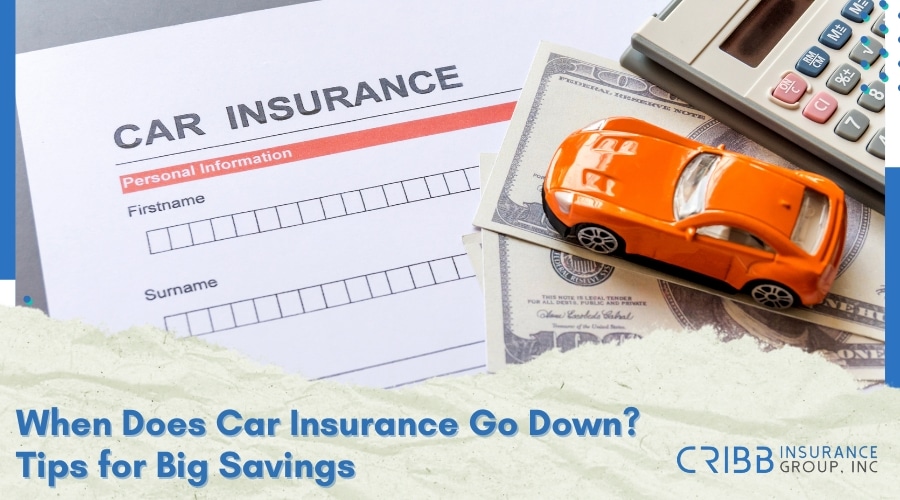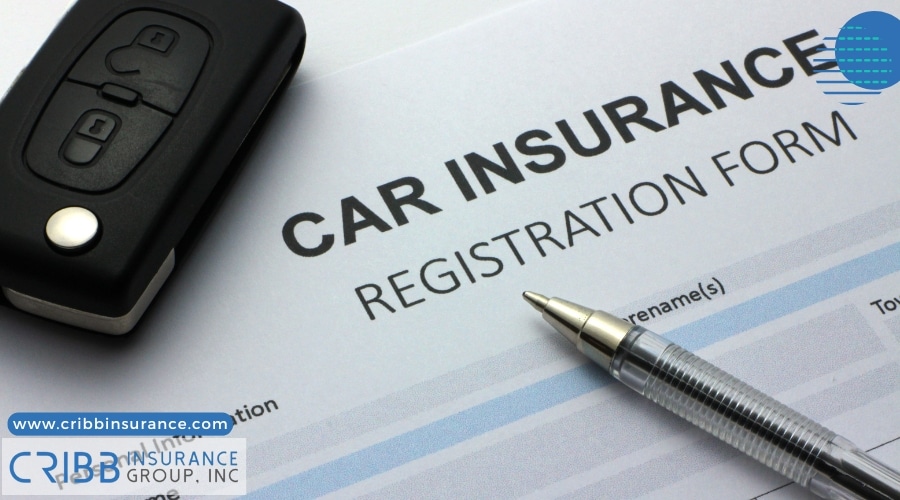Understanding Car Insurance Rates
Car insurance rates can seem confusing, but they follow some predictable patterns. Insurers use various factors to determine your premium, including:
- Age: Younger drivers, especially those under 25, often face higher rates. As you age, your rates generally decrease because you’re considered less risky.
- Driving Record: A clean driving history helps lower your rates. Drivers with frequent violations or accidents pay more.
- Credit Score: Good credit scores usually lead to lower insurance rates. Insurers believe people with good credit are less likely to file claims.
- Vehicle Type: The make and model of your car impact your rates. Expensive or high-performance cars often cost more to insure.
- Choose a Safe Vehicle: Opting for a car with advanced safety features can lower your insurance costs.
- Maintain Your Car: Regular maintenance can prevent accidents and help keep your rates down.

Key Milestones When Car Insurance Typically Decreases
Several milestones can lead to reduced car insurance premiums:
- Turning 25: Rates often drop at age 25 as insurers view you as a more experienced and less risky driver.
- Maintaining a Clean Record: After one year without claims or violations, you may see a decrease in your premiums.
- Improving Credit Score: Enhancing your credit score can lead to lower rates. Insurers might offer discounts if your score improves.
- Paying Off Your Car: Some insurers reduce rates once you pay off your car loan since you no longer have a lender to protect.
- Reevaluate Coverage: As your risk profile changes with age or a clean record, consider adjusting your coverage to better suit your current needs.
- Review Your Policy Annually: Regularly checking your policy can help you catch any opportunities for savings.
Tips on How to Lower Car Insurance Premiums
Reducing your car insurance premiums involves a few practical steps:
- Shop Around: Compare quotes from different insurers to find the best deal.
- Increase Deductibles: Higher deductibles can lower your premium, but ensure you can afford the higher out-of-pocket cost in case of a claim.
- Bundle Policies: Combining car insurance with other policies, like home insurance, can lead to discounts.
- Take Advantage of Discounts: Look for discounts based on good driving habits, safety features in your car, or being a student with good grades.
- Use Usage-Based Insurance: Some insurers offer lower rates if you drive less or have a telematics device installed in your car.
- Maintain Good Driving Habits: Avoiding traffic violations and accidents can help you qualify for better rates.
Comparing Car Insurance Quotes Regularly
Regularly comparing car insurance quotes is crucial to ensure you’re getting the best rate:
- Annual Review: Review your policy each year to check if better rates are available.
- New Quotes: Obtain quotes from various insurers when your policy is up for renewal or after major life changes.
- Use Comparison Tools: Online tools can help compare multiple quotes quickly and easily.
- Check for New Discounts: Insurers frequently update their discount offerings, so keep an eye out for new opportunities to save.
- Assess Coverage Needs: Ensure your coverage aligns with your current circumstances and not based on outdated needs.
Impact of Driving Record on Insurance Rates
Your driving record plays a significant role in determining your insurance rates:
- Clean Record: A clean record with no accidents or violations often leads to lower premiums.
- Traffic Violations: Speeding tickets and other violations can increase your rates.
- Accidents: At-fault accidents can significantly raise your premiums. Some insurers offer accident forgiveness programs.
- Attend Defensive Driving Courses: Completing these courses can sometimes lead to discounts on your insurance premiums.
- Monitor Your Record: Regularly check your driving record for accuracy and address any issues promptly.

The Role of Credit Score in Car Insurance Costs
Credit scores affect car insurance costs:
- Higher Scores: Generally lead to lower premiums as insurers believe you are a lower risk.
- Lower Scores: Can result in higher rates. Improving your credit score can help reduce your insurance costs over time.
- Improve Credit: Take steps to boost your credit score, such as paying off debts and making payments on time.
- Check Your Credit Report: Regularly review your credit report for errors that could impact your insurance rates.
Age-Related Changes in Car Insurance Rates
Age impacts car insurance rates in various ways:
- Under 25: Typically face higher rates due to perceived higher risk.
- 25-65: Rates usually decrease as you gain experience.
- Over 65: Rates might rise again as insurers consider older drivers to be at higher risk.
- Understand Rate Changes: Know how different age milestones affect your insurance rates and plan accordingly.
- Seek Senior Discounts: If you’re over 65, look for insurers that offer discounts for senior drivers.
Discounts and Special Programs to Reduce Premiums
Many insurers offer discounts that can help lower your premiums:
- Safe Driver Discounts: For maintaining a clean driving record.
- Multi-Car Discounts: For insuring more than one vehicle with the same company.
- Safety Feature Discounts: For cars equipped with safety features like anti-lock brakes or airbags.
- Ask About Additional Discounts: Inquire about any discounts for affiliations, memberships, or completing certain driving courses.
- Review Policy Annually: Ensure that all applicable discounts are being applied to your policy each year.

Frequently Asked Questions
When does car insurance typically go down?
Car insurance rates generally decrease when you turn 25, improve your credit score, maintain a clean driving record, or pay off your car loan.
Does car insurance automatically go down at 25?
Many insurers lower rates when you turn 25, as they consider you a less risky driver.
How long does it take for car insurance rates to decrease for new drivers?
Rates may decrease after a few years of driving experience and a clean driving record.
Why is my car insurance so expensive at age 25?
Rates might still be high if you have a poor driving record or low credit score, despite being over 25.
What are some effective ways to lower car insurance premiums?
Shop around, increase deductibles, bundle policies, and take advantage of discounts.
Final Thoughts and Take Action Today
Understanding when car insurance rates go down and how to lower premiums can lead to significant savings. By monitoring milestones like age and maintaining good driving habits, you can manage your insurance costs effectively.
For personalized advice and to explore the best insurance options for your needs, contact Cribb Insurance Group Inc. Our experts at Cribb Insurance Group Inc are here to help you find the best rates and save on your car insurance. Don’t miss out on potential savings—reach out to us today!





